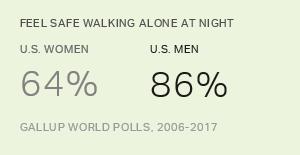Opportunity is part of the American ethos -- the United States is advertised as a land where individuals can rise from poverty to prosperity by sheer skill and determination, and someone born in a log cabin can become president of the United States. According to recent multinational Gallup research*, most Americans are highly content with the chances they've been given; 55% say they are very satisfied with their opportunities to succeed in life. By comparison, less than half (47%) of Canadians are very satisfied, and only slightly more than a third (35%) of Britons are very satisfied.
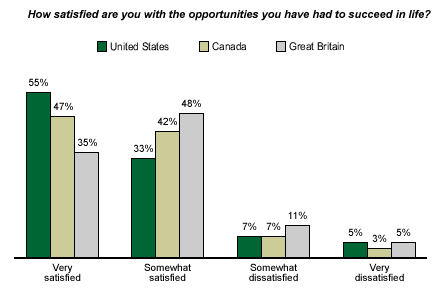
Success doesn't mean the same thing to everyone, but society often measures it in terms of financial or academic achievement. In all three countries, the likelihood to be very satisfied with one's opportunities increases with individuals' income and education levels; those in the highest income groups and those with the most education are the most likely to be very satisfied. Even in Britain, where relatively few are very satisfied, a slim majority of those in the highest income group say they are very satisfied.
Concern about reported disparities in men's and women's wages and job opportunities likely still exists -- but in each country surveyed, men and women are equally likely to be very satisfied with their opportunities to succeed in life.
Generations of Success
Members of the baby boom generation and their elders tend to be at least slightly more satisfied with their opportunities to succeed than are people younger than 50. It may be that older people have simply been around long enough to have had more opportunities. But perhaps there's a slight generational effect: Baby boomers -- especially in the United States and Canada -- had the advantage of being in their prime earning years during times of expanding economies, and have lived through times when succeeding generations could expect to do better economically than the preceding generation.
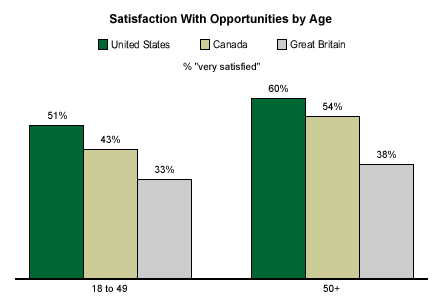
Praying for Success?
Finally, even accounting for differences in income and education, church attendance appears to make a modest difference in the United States and Great Britain. In the United States, nearly two-thirds (66%) of those who attend church weekly say they are very satisfied with their opportunities to succeed, compared with 55% of those who attend almost weekly or monthly and 47% of those who seldom or never attend. In Great Britain, those who have attended religious services in the past six months, apart from special occasions, are more likely to be satisfied with their opportunities than those who have not -- 44% to 32%. In Canada, however, there are essentially no differences: 49% of those who have attended in the last six months are very satisfied, compared with 45% of those who have not.
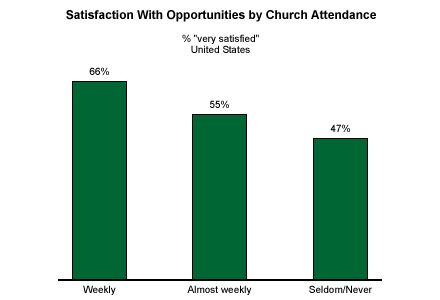
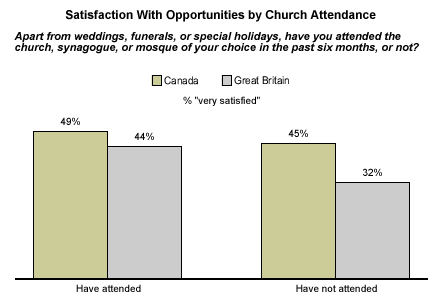
*Results in the United States are based on telephone interviews with 2,264 national adults, aged 18 and older, conducted June 6-25, 2005, including oversamples of blacks and Hispanics that are weighted to reflect their proportions in the general population. For results based on the total sample of national adults, one can say with 95% confidence that the maximum margin of sampling error is ±5 percentage points.
Results in Canada are based on telephone interviews with 1,005 national adults, aged 18 and older, conducted Aug. 22-31, 2005. For results based on the total sample of national adults, one can say with 95% confidence that the maximum margin of sampling error is ±3 percentage points. The survey was conducted by Gallup Canada.
Results in Great Britain are based on telephone interviews with 1,010 national adults, aged 18 and older, conducted Aug. 26-Sept. 8, 2005. For results based on the total sample of national adults, one can say with 95% confidence that the maximum margin of sampling error is ±3 percentage points. The survey was conducted by Gallup UK.
In addition to sampling error, question wording and practical difficulties in conducting surveys can introduce error or bias into the findings of public opinion polls.
